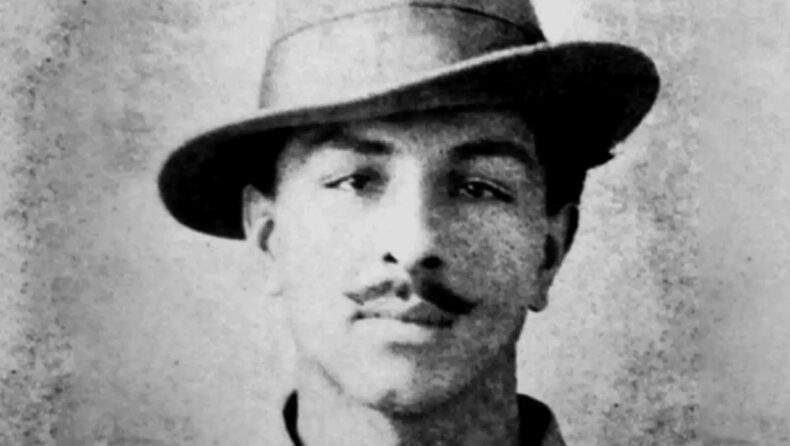Bhagat Singh, one of the most influential 23-year-old revolutionary freedom fighters, was born on September 28th, 1907 in Lyallpur, western Punjab, India (now in Pakistan).
Bhagat Singh, the great and incredible revolutionary-
This incredible figure didn’t even fear death and got hung by British colonizers, standing tall with unshaken courage. He is considered a national hero against colonial rule and popularized the slogan “Inquilab Zindabad!” (Long live revolution).
He had such an impact on people that his story is still told today, and films and plays based on his life are made to inspire the youth.
Bhagat Singh-Family Background
Bhagat Singh was born into a Sikh family who were supporters of the Ghadar party and believed in Gandhian principles.
His politically aware family at home incited his patriotic feelings towards his nation. At the time of his birth, his father Kishan Singh and uncles Ajit Singh and Swaran Singh were in jail for demonstrations against the Colonization Bill implemented in 1906.
Which incidents shaped this great man and his patriotic feelings?
During his teens, he was agitated by the blood of people who died at the Jallianwala Bagh massacre, on the order of General Dyer, and the ruthless killing of the unarmed Akali protesters.
These two incidents infuriated anger in him and, from a very young age, he joined the non-cooperation movement and started participating in anti-British movements.
Bhagat Singh’s writings, thoughts, and ideologies—
His desire to learn, read, and know more and his inquisitive nature made him an extremely intellectual and learned person at such an early age. His thoughts awakened the need to revolt against colonialism, and he wrote multiple thought pieces in various Indian newspapers.
He wrote short articles, channeling the same. His writings include “Revolutionaries”, “Problem of Punjab’s Language and Script”, “Why I am an Atheist”, “To Young Political Workers”, etc.
His writings contain numerous references to Marx; Lenin; Bakunin; Trotsky; the Russian, French, and Irish revolutions; socialism and communism, etc.
His fight, along with his fellow comrades, was mainly against social injustice. He wanted India to no longer be a society where the poor are exploited by capitalists. Although people feel his ideals to be utopian, he believed that it would take 20 years to bring the desired change.
Bhagat Singh’s Atheism and critical thinking-
Bhagat Singh didn’t believe in God and believed that man created God in his imagination when he realized his weaknesses and shortcomings. He was accused of vanity for denying the existence of God. He also offered arguments for his disbelief.
He cited Darwin’s theory of evolution to explain the origin of life and species and natural history to explain the universe.
He believed “merciless criticism and independent thinking are two necessary traits of revolutionary thinking.” Thus, he questioned orthodox beliefs and gave utmost importance to reasoning.
Bhagat Singh on Love, life, and death-
Bhagat Singh was an ultimate believer in love and regarded love as the most beautiful and powerful emotion. In his letter to Sukhdev, he said, “Love in itself is nothing but passion; not an animal passion but a human one, and very sweet too.
Love in itself can never be an animal passion. Love always elevates the character of a man. It never lowers him, provided love be love. You can’t call these girls- mad people, as we generally see in films- lovers.
They always play into the hands of the animals’ passions. True love cannot be created. It comes of its own accord; nobody can say when. It is but natural.”
Bhagat Singh, the greatest of all men, died at 23, having led a full life. At 21, he threw bombs on the parliament building to create terror in the hearts of Britishers. After spending two years in jail, this legend was hanged in March 1931.
Readmore- The Chandigarh Airport will be renamed after Bhagat Singh, PM Narendra Modi announced













